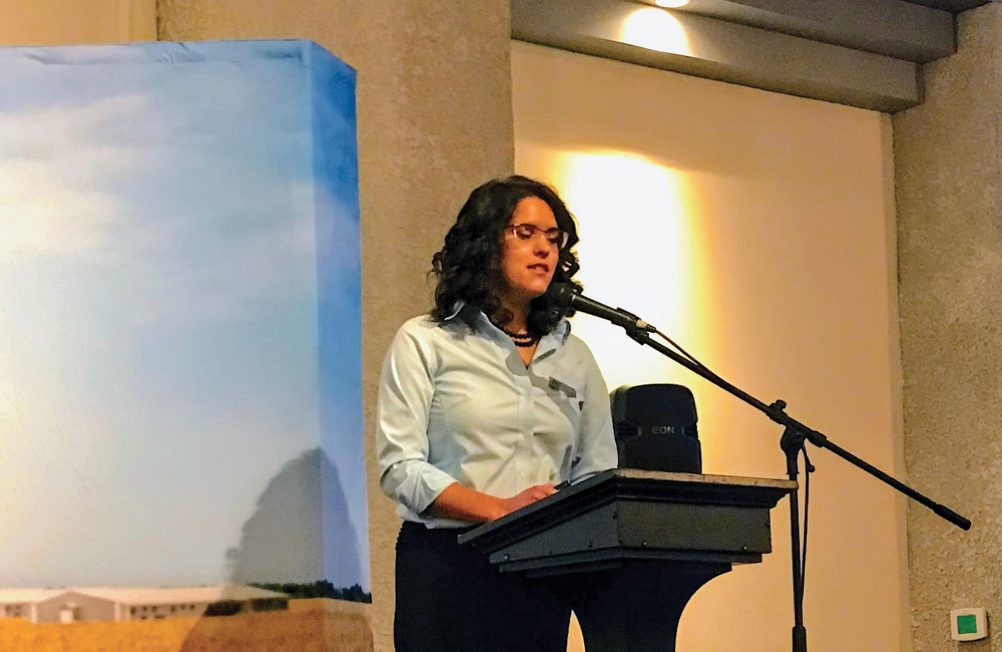
Jenelle Hamblin, the Director of Swine Health with Manitoba Pork, highlighted that the lessons learned from the 2021-2022 Porcine Epidemic Diarrhea (PED) outbreak in Manitoba are aiding pork producers in preparing for future outbreaks. The last major PED outbreak in the province started in October 2021 and reached its peak in January 2022, with 129 farms infected officially declared over in late 2023. This outbreak was notably different from previous ones, especially in terms of its timing. The knowledge gained from this experience is now helping to equip producers to handle similar situations better.
Hamblin said the 2021-22 Porcine Epidemic Diarrhea (PED) outbreak in Manitoba was unique. It primarily occurred during the winter months from October 2021 through March 2022.
“Previous outbreaks, which typically happened between April and October, as seen in 2017 and 2019,” she said.
The winter outbreak posed unprecedented challenges, with severe cold and blizzard conditions complicating biosecurity measures and farm cleaning and disinfection processes. These conditions also delayed animal transport, hindering the ability to remove PED-positive pigs from farms and extending the time needed for farms to reach a transitional status, where no animals pose a risk for PED transmission.
“This experience was new for the producers and provided valuable lessons in managing PED under difficult winter conditions.”
“The key lesson from the 2021-2022 PED outbreak in Manitoba is that the best strategy for managing PED is elimination,” said Hamblin.
This insight was the result of extensive research and analysis by the Future of PED Working Group, which concluded that aiming for the complete eradication of PED is the most effective approach.
Hamblin said this group developed a five-year PED elimination plan, a road map for managing the disease stepwise through 2027.
“The significance of this lesson lies in its clear direction for future outbreak management, emphasizing elimination rather than just disease control.”
She said this approach would likely involve coordinated efforts among producers, veterinarians, and industry stakeholders to implement stringent biosecurity measures, timely diagnosis, and effective response protocols.
The information and strategies outlined in the PED elimination plan will benefit pork producers, industry associations like Manitoba Pork, veterinary professionals, and possibly governmental agricultural bodies.
“These groups will collaborate to implement the plan, aiming to mitigate the impact of PED and prevent future outbreaks, thereby protecting the swine industry’s economic and animal health interests,” said the Director of Swine Health with Manitoba Pork.
Manitoba Pork emphasizes that producers should remain vigilant and enhance biosecurity practices, especially with the approaching spring manure application season. “We urge producers, particularly in southeastern Manitoba, a high-risk area, to review and strengthen their biosecurity measures. This includes consulting with veterinarians, seeking information from Manitoba Pork or Manitoba Agriculture, and understanding and mitigating risks associated with PED.”
Producers and industry stakeholders can access detailed information and resources on PED management online at the Manitoba Pork website, specifically in the PED section of their producer web page.
“Additionally, engaging with veterinarians familiar with each farm’s specific conditions can provide tailored advice and strategies to enhance biosecurity.”
For those in Manitoba, participation in the Manitoba Coordinated Disease Response (MCDR) to receive notifications about PED risks and join a collective effort in managing and responding to outbreaks.
Hamblin thanked Dr. Yetta Christensen from the CWSHIN (Canada West Swine Health Intelligence Network) for her epidemiology expertise, which is crucial in understanding and managing the PED outbreak in Manitoba.
Dr. Christensen’s contributions were instrumental in the Future of PED Working Group’s planning stages and response efforts.
“This acknowledgment highlights the importance of collaboration and expert input in effectively addressing animal health crises.” •
— By Harry Siemens




